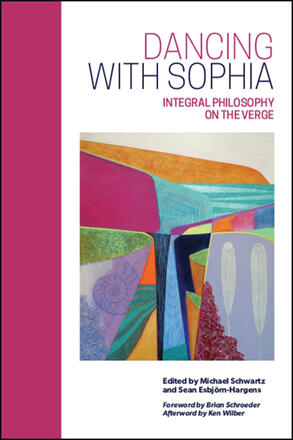
Dancing with Sophia
Integral Philosophy on the Verge
Alternative formats available from:
Explores the philosophical dimensions and implications of integral theory.
Description
Dancing with Sophia is the first book of essays to focus on the philosophical dimensions and implications of integral theory. A metatheory that organizes first order theories and disciplines into higher order modes of knowing and insight needed to address the complexity of today's world, integral theory has already impacted a wide range of disciplines, from psychology to business to religious studies to art. Included here are perspectives by scholars in the continental, comparativist, and process traditions who dive into integral theory's postmetaphysical claims in order to mine, extend, and critique its philosophical merits. On the verge of its own emergence, integral philosophy promotes modes of creative critical thought oriented toward the multidimensional flourishing of planetary well-being, and Dancing with Sophia will be of interest to scholars in philosophy; religious studies; transpersonal, developmental, and humanist psychology; and more.
Michael Schwartz is Professor of Art History and Humanities at Augusta University. He is coeditor (with Jason M. Wirth and David Jones) of On the True Sense of Art: A Critical Companion to the Transfigurements of John Sallis and The Gift of Logos: Essays in Continental Philosophy. Sean Esbjörn-Hargens is the founder of MetaIntegral, a social enterprise company dedicated to the professional application of integral principles. He is coeditor (with Jonathan Reams and Olen Gunnlaugson) of Integral Education: New Directions for Higher Learning and editor of Integral Theory in Action: Applied, Theoretical, and Constructive Perspectives on the AQAL Model, both published by SUNY Press.
Reviews
"Integral theory is a bold and provocative endeavor. It challenges one to think past the norm, to sail beyond the horizon and risk encountering the Scylla and Charybdis of what is academically acceptable—or at least familiar—and what is possible, in ways that only are now beginning to dawn on both thinking and dwelling. If it is nothing else, integral theory is the movement beyond the purely intellectual into the lived experience. This is its 'meta-' dimension properly understood. " — from the Foreword by Brian Schroeder